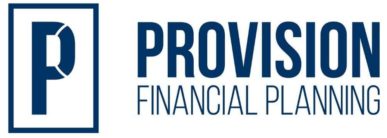What should you do with an old 401k/403b/Employer plan? You have options. It seems like this is coming up more and more as people seem to change employers more and more. Some people have so many old employer plans that it seems they are 401k “collectors”. Retirement planning is complicated enough without adding unnecessary accounts into the mix.
Staying organized is one of the core tenants of good financial management. It may not always make sense to consolidate everything together, but you should at least limit the number of accounts and financial institutions you have to the ones you need.
You have five options:
- Leave it at the old employer. Good ol’ inertia. The 401k recordkeepers definitely make this the easiest option because of all the unnecessary paperwork they require to move an old plan. This option can make sense if it is a really great plan (low costs, good funds, etc) or you are between age 55 and 59.5.
- Roll it to the new employer. This keeps things simple if you do not want to work with a professional to manage the investments. If nothing else, an employer plan generally has better creditor protection. The current plan has to allow rollovers to come in and should have reasonable fees.
- Direct Rollover to an IRA. This is the option you’ll probably need to go with if you want to work with a professional financial advisor since we typically cannot manage funds in a 401k. There are no tax consequences and you’ll have considerably more flexibility in terms of investment choices, whether you work with an advisor or not.
- Indirect Rollover to an IRA. There are very few reasons you would do this. There is an IRS rule that allows you to cash out a retirement account and not pay taxes and/or penalties if you replace it within 60 days. This can be in effect a very short-term loan, although a loan with very bad consequences (see “cash it out” below) if you don’t pay it back. Also, you can only do one of these every 12 months.
- Cash it out– There is one reason to do this: you need the money. Just know that it will be fully taxable at your current income tax rate and a 10% early distribution will apply if you are younger than 59.5.
Beware of Roth and After-Tax Funds
For both, you will want to consider rolling these funds to a Roth IRA. Roths have different rules and are a little more favorable to keeping in an IRA instead of a 401k. This includes no Required Minimum Distributions (RMDs) and access to the funds. The access is penalty free after it’s been in there for 5 years. There are obviously always extenuating circumstances but strongly consider this option if you have either Roth or After-tax money in an employer plan.
Beware of NUA (Net Unrealized Appreciation)
This applies if you own company stock in your 401k plan. The specifics of this strategy are beyond the scope of this article due to its complexity. The short story is that it’s time to book an appointment with an advisor who has done this before if you leave a company and have that company’s stock in your company retirement plan.
Like most things in personal finance you will need to consider your overall financial picture. You can also schedule an intro meeting to discuss your specific situation.

